Ep. 55: Gray Harris – Senior Vice President of Food Systems @ Coastal Enterprises, Inc. (CEI) ||
.
On episode 55 we welcome Gray Harris, Senior Vice President of food systems at Coastal Enterprises, Inc. (CEI) in Brunswick Maine. Harris is responsible for the strategy, development and implementation of action-oriented business initiatives in the agriculture, food systems, and aquaculture and fisheries sectors. In her role, Gray assesses sector needs and identifies sources of specialized technical assistance and financing for start-up and expanding food businesses; this includes spearheading the development of funds for sector-specific lending and investing at CEI.
.
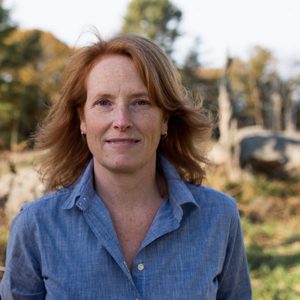 In our 45 minute conversation we discuss the ins and outs of investing in regional and sustainable food systems of the Northeast and beyond. CEI is a mission-driven lender and investor specializing in rural business development and financing. In Maine, and throughout the U.S., CEI helps to create economically and environmentally healthy communities in which all people, especially those with low incomes, can reach their full potential. CEI is unique with its dossier of offerings which include business loans, micro-loans, new market tax credits, sub-debt loans, SBA 504 loans, business plans, marketing plans, business advising, financial advising, and public policy leadership.
In our 45 minute conversation we discuss the ins and outs of investing in regional and sustainable food systems of the Northeast and beyond. CEI is a mission-driven lender and investor specializing in rural business development and financing. In Maine, and throughout the U.S., CEI helps to create economically and environmentally healthy communities in which all people, especially those with low incomes, can reach their full potential. CEI is unique with its dossier of offerings which include business loans, micro-loans, new market tax credits, sub-debt loans, SBA 504 loans, business plans, marketing plans, business advising, financial advising, and public policy leadership.
.
Gray Harris is a former director of the Maine Farms for the Future program, a statewide business planning and grants program for Maine farmers. She participates in numerous action-oriented initiatives statewide, including the boards of Wolfe’s Neck Farm and the Maine Harvest Credit Union, the Tech Board of the Maine Technology Institute, and she’s a marathon runner! This all comes in handy with her role of conducting Maine’s Value chain.
.
Dutch-American agricultural economist Renée Vassilos joins again as our co-host. Stemming from fifteen years of agriculture industry know-how with John Deere and the USDA, Vassilos leverages her global cross-functional experience to support the growth of sustainability-focused agriculture business. We’re lucky to have her wealth of knowledge in the co-pilot seat for these types of conversations.
.
Tune-In to hear more from our conversation which ranged from place-based investment, circular economies, Maine fisheries and we profile the vertical integration of some of the best beer you’ll ever get to experience with Lunch!
.
@CEIMaine
co-host:
Renee Vassilos
- Agricultural Economist
- Regenerative & Big Ag intermediary
- past portfolio manager: Deere China
- Bilingual Dutch / American citizen
Full bio: Renée Vassilos is a Dutch-American Agricultural Economist with over fifteen years of agriculture industry experience. Her expertise ranges from strategic market analysis and product development to sales, marketing and distribution strategy. She has lived and worked abroad- three years in Amsterdam and six years in Beijing- contributing to her robust global experience, cultural competence, and network.
Today, Vassilos is sharing her expertise through her consulting business. She utilizes her global cross-functional experience from working for the USDA and John Deere to support the growth of sustainability-focused agriculture businesses. She has a BS and MS in Agricultural Economics from the University of Illinois, Champaign-Urbana and University of California, Davis, respectively.


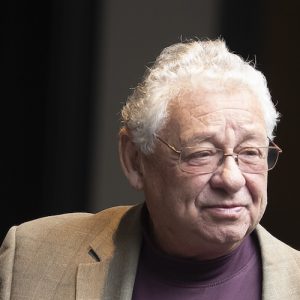 In early November 2018 Goldberg hosted The “ChooseFood” symposium in Baltimore. It was a gathering to evaluate some of the core ethical questions of food and its production. Top brass speakers shared insight on ethics of in food labor, environmental impact, externalities, animal welfare, health risk factors & new tech – all were on the docket. Coming it at from the food animal side It was a fascinating exercise for me to see how far we’ve come since the 2007 PEW commission report, what more needs to be done with food animal production, and how broad the aperture has grown to encapsulate ethics into our food and global production.
In early November 2018 Goldberg hosted The “ChooseFood” symposium in Baltimore. It was a gathering to evaluate some of the core ethical questions of food and its production. Top brass speakers shared insight on ethics of in food labor, environmental impact, externalities, animal welfare, health risk factors & new tech – all were on the docket. Coming it at from the food animal side It was a fascinating exercise for me to see how far we’ve come since the 2007 PEW commission report, what more needs to be done with food animal production, and how broad the aperture has grown to encapsulate ethics into our food and global production. Joining us for the 45 minute discussion is The Carrot Project founder and Executive Director Dorothy Suput. Suput’s commitment to a sustainable food system grew out of the incredible contrasts between Midwestern agriculture, with which she grew up, and the locally focused food and farming system in Switzerland, where she lived after graduating with a BS from Purdue University. Following graduate school at Tufts, Dorothy worked as the first regional organizer on the 1995 Farm Bill for the Northeast Sustainable Agriculture Working Group under the auspices of the Campaign for Sustainable Agriculture, and subsequently, as a consultant for business and agency.
Joining us for the 45 minute discussion is The Carrot Project founder and Executive Director Dorothy Suput. Suput’s commitment to a sustainable food system grew out of the incredible contrasts between Midwestern agriculture, with which she grew up, and the locally focused food and farming system in Switzerland, where she lived after graduating with a BS from Purdue University. Following graduate school at Tufts, Dorothy worked as the first regional organizer on the 1995 Farm Bill for the Northeast Sustainable Agriculture Working Group under the auspices of the Campaign for Sustainable Agriculture, and subsequently, as a consultant for business and agency.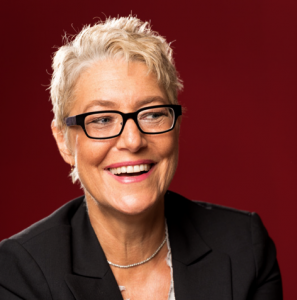 For episode 49 of Sourcing Matters we focus on Karp’s recent project – “Investigating the Role of Women, Capital, and the Transformation of Food and Agriculture.” Co-chaired by leadership at AgFunder and ‘The New Food Economy’, this analysis sets to find some answers to timely and important questions that we all need to pay more attention to. As sons, husbands, brothers & fathers – we all need to pay better attention too. Since establishing Karen Karp & Partners in 1990 she’s focused efforts on developing a range of bespoke strategies that explore the interconnections between agriculture, food, policy and people, and how to marry common interests of the for-profit and nonprofit sectors. KK&P has grown to become a nationally respected boutique consultancy with a uniquely skilled staff and a diverse roster of clients – including nearly a decade co-producing the James Beard Foundation conference.
For episode 49 of Sourcing Matters we focus on Karp’s recent project – “Investigating the Role of Women, Capital, and the Transformation of Food and Agriculture.” Co-chaired by leadership at AgFunder and ‘The New Food Economy’, this analysis sets to find some answers to timely and important questions that we all need to pay more attention to. As sons, husbands, brothers & fathers – we all need to pay better attention too. Since establishing Karen Karp & Partners in 1990 she’s focused efforts on developing a range of bespoke strategies that explore the interconnections between agriculture, food, policy and people, and how to marry common interests of the for-profit and nonprofit sectors. KK&P has grown to become a nationally respected boutique consultancy with a uniquely skilled staff and a diverse roster of clients – including nearly a decade co-producing the James Beard Foundation conference.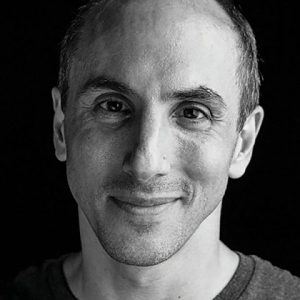 After working alongside some of the world’s best chefs at Square One, Le Cirque, and La Bernadin – Michael Leviton returned to his hometown of Newton, Massachusetts in 1999 to open Lumière. In Lumière’s first two years in business, the restaurant was recognized as one of the Best New Restaurants in America by Bon Appétit, and Michael was named a Best New Chef by Food & Wine. In 2011, Leviton opened Area Four, a wood-burning oven/bar and attached coffeehouse/bakery. Modern and minimalistic in both menu and design, each property earned local and national recognition for serving highest quality product, sourced locally and all scratch made, at a price point and in a setting that is accessible to all.
After working alongside some of the world’s best chefs at Square One, Le Cirque, and La Bernadin – Michael Leviton returned to his hometown of Newton, Massachusetts in 1999 to open Lumière. In Lumière’s first two years in business, the restaurant was recognized as one of the Best New Restaurants in America by Bon Appétit, and Michael was named a Best New Chef by Food & Wine. In 2011, Leviton opened Area Four, a wood-burning oven/bar and attached coffeehouse/bakery. Modern and minimalistic in both menu and design, each property earned local and national recognition for serving highest quality product, sourced locally and all scratch made, at a price point and in a setting that is accessible to all.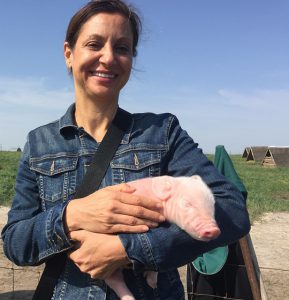 The “ChooseFood” gathering was a collective effort of the Johns Hopkins Berman Institute of Bioethics, the Johns Hopkins Bloomberg School of Public Health, and the Hopkins Center for a Livable Future. The goal of the event was to evaluate the broad reaching ethics of food, and its production. Issues like Labor, environmental impact, externalities, animal welfare, health risk factors & new tech were all part of the ethical questions for food. Maisie was asked to share with the group some of the impact her work has had, and how the commitments at Bon Appétit have influenced some vast changes in the foodservice industry.
The “ChooseFood” gathering was a collective effort of the Johns Hopkins Berman Institute of Bioethics, the Johns Hopkins Bloomberg School of Public Health, and the Hopkins Center for a Livable Future. The goal of the event was to evaluate the broad reaching ethics of food, and its production. Issues like Labor, environmental impact, externalities, animal welfare, health risk factors & new tech were all part of the ethical questions for food. Maisie was asked to share with the group some of the impact her work has had, and how the commitments at Bon Appétit have influenced some vast changes in the foodservice industry.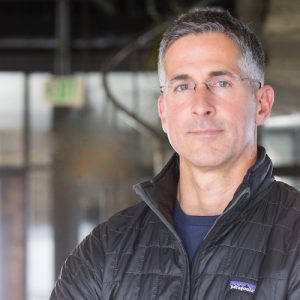 Prior to Thrive, McIntosh was the founding Director of Sustainability & Corporate Citizenship at Nestlé Waters North America, the $4B division of the world’s largest consumer water company. At Nestlé Waters, Alex developed the vision and strategic plan, and provided hands-on leadership to build the corporation’s first sustainability program from the ground up during a time of intense social scrutiny. Prior to Nestlé, Alex was Director of Philanthropy at The Nature Conservancy, where he helped raise a record $75MM in private capital for two of the largest watershed conservation projects in the organization’s history.
Prior to Thrive, McIntosh was the founding Director of Sustainability & Corporate Citizenship at Nestlé Waters North America, the $4B division of the world’s largest consumer water company. At Nestlé Waters, Alex developed the vision and strategic plan, and provided hands-on leadership to build the corporation’s first sustainability program from the ground up during a time of intense social scrutiny. Prior to Nestlé, Alex was Director of Philanthropy at The Nature Conservancy, where he helped raise a record $75MM in private capital for two of the largest watershed conservation projects in the organization’s history.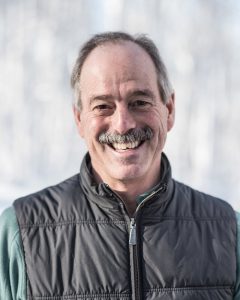 They’re surely good eating, but oysters represent so much good to their surrounds, the shared environments, and the communities they support. You see, each adult oyster filters 50 gallons of water daily, they restore keystone marine ecosystems, and they build protective reefs around susceptible coastal communities – protecting us from storm surge and severe weather events. In this 45 minute discussion Bill Mook goes into details describing why Oysters are so important to the stability of seas, and to our planet. As you’ll hear, Mook has implemented bleeding-edge R&D in his hatchery that is second to none. Innovations include development of methods for overwintering seed out of the water; a tidal powered nursery system; a vessel and gear for mechanizing the use of OysterGro™ cages; and a unique, energy efficient, and highly productive system for growing the micro-algae we use for food in the hatchery. Effectively his approach to “brew” feed for Oysters, or for other animals for that matter, sets to be revolutionary.
They’re surely good eating, but oysters represent so much good to their surrounds, the shared environments, and the communities they support. You see, each adult oyster filters 50 gallons of water daily, they restore keystone marine ecosystems, and they build protective reefs around susceptible coastal communities – protecting us from storm surge and severe weather events. In this 45 minute discussion Bill Mook goes into details describing why Oysters are so important to the stability of seas, and to our planet. As you’ll hear, Mook has implemented bleeding-edge R&D in his hatchery that is second to none. Innovations include development of methods for overwintering seed out of the water; a tidal powered nursery system; a vessel and gear for mechanizing the use of OysterGro™ cages; and a unique, energy efficient, and highly productive system for growing the micro-algae we use for food in the hatchery. Effectively his approach to “brew” feed for Oysters, or for other animals for that matter, sets to be revolutionary.
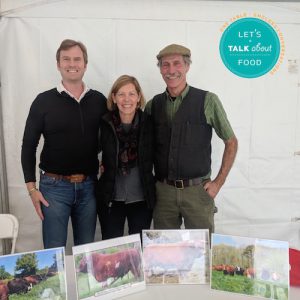 Sourcing Matters ep. 41: “Systems Thinking in food production”– live recorded at the “Let’s talk about Food” festival at Harvard University – looks at harmonizing with more natural systems, and evaluates better management practice that could be used to produce our food in the future. Host Aaron Niederhelman will guide the discussion to cover diverse topics. Not the least of which a process that’s being used to sequester carbon through reengaging the natural system of our living soils – on the hoof. Additionally, one of the most under valued workforce in food production – pollinators. And, it’ll be a conversation that clearly detail how what you eat is the most impactful vote you have to positively benefit your health and that of your family, to increase global stability and to mitigate climate change. So, If you’re an environmentalist, a humanitarian, a patriot, a doctor, or even that you just want to look and feel better – tune-in and learn how your grocery budget can change the world.
Sourcing Matters ep. 41: “Systems Thinking in food production”– live recorded at the “Let’s talk about Food” festival at Harvard University – looks at harmonizing with more natural systems, and evaluates better management practice that could be used to produce our food in the future. Host Aaron Niederhelman will guide the discussion to cover diverse topics. Not the least of which a process that’s being used to sequester carbon through reengaging the natural system of our living soils – on the hoof. Additionally, one of the most under valued workforce in food production – pollinators. And, it’ll be a conversation that clearly detail how what you eat is the most impactful vote you have to positively benefit your health and that of your family, to increase global stability and to mitigate climate change. So, If you’re an environmentalist, a humanitarian, a patriot, a doctor, or even that you just want to look and feel better – tune-in and learn how your grocery budget can change the world.